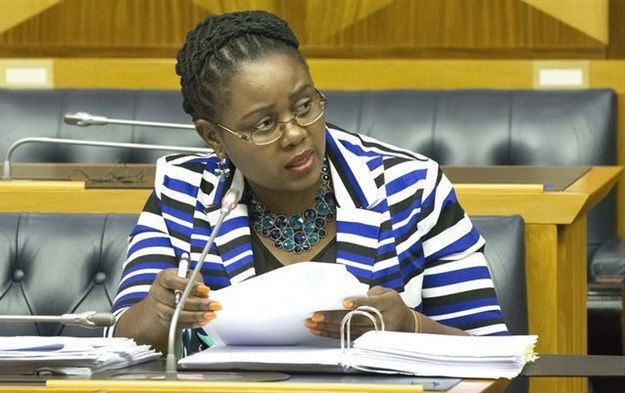
Top stories





Energy & MiningGlencore's Astron Energy gears up with new tanker amidst Sars dispute
Wendell Roelf 12 hours

More news

















Logistics & Transport
Uganda plans new rail link to Tanzania for mineral export boost










This is despite a long-standing ANC policy position that supports encryption.

"The current government policy is nonencryption. Thus far, 1.5-million set-top boxes have been ordered and approximately 850,000 were delivered," said Ireen Magwai, who speaks on behalf of Communications Minister Mmamoloko Kubayi-Ngubane.
Set-top boxes are needed to decode the digital signal for television sets that do not have digital capabilities. Conditional access and encryption is crucial for pay-TV broadcasters, as it allows them to control who has access to their content.
Kubayi-Ngubane's position effectively reverses previous communications minister Ayanda Dlodlo's policy position, which sought to ensure that settop boxes are encrypted - as per ANC resolution.
In December, Jackson Mthembu, who heads the ANC's communications subcommittee, reiterated that encryption remained the party's policy.
ANC alliance partner the South African Communist Party also backs encryption.
Dlodlo dumped the policy position of her predecessor, Faith Muthambi, who supported the nonencryption of set-top boxes in defiance of the governing party's policy position. The position that Muthambi took on nonencryption was supported by pay-TV company MultiChoice and the SABC.
In 2013, the ANC adopted a policy that supported the use of encrypted set-top boxes for digital migration.
Kubayi-Ngubane told Parliament recently that her department had requested a legal opinion on the Constitutional Court ruling on the set-top box matter, which was handed down late in 2017.
The ruling made it clear that policy making was the government's prerogative, meaning the Department of Communications was well within its rights to decide whether set-top boxes would be encrypted or not.
Kubayi- Ngubane pointed out that the court had cautioned the government not to utilise public funds to the benefit of private commercial interests.
Broadcaster e.tv, which challenged Muthambi's policy, had argued that encryption was needed in free-to-air set-top boxes to allow other broadcasters to compete with MultiChoice and challenge its monopoly on pay-TV.
MultiChoice, which owns MNet and DStv, stated that encrypted digital set-top boxes risked being expensive for the government and would disadvantage the poor. Bickering over the issue delayed SA's plans to migrate from analogue to digital. Allegations, including a copy of minutes of a meeting held between MultiChoice and SABC executives in 2013, emerged in 2017, suggesting the pay-TV operator would proceed with its multimillion-rand deal with the public broadcaster to include the SABC News Channel on the DStv bouquet only if the government supported nonencryption.
The ANC could not be reached for comment.

For more than two decades, I-Net Bridge has been one of South Africa’s preferred electronic providers of innovative solutions, data of the highest calibre, reliable platforms and excellent supporting systems. Our products include workstations, web applications and data feeds packaged with in-depth news and powerful analytical tools empowering clients to make meaningful decisions.
We pride ourselves on our wide variety of in-house skills, encompassing multiple platforms and applications. These skills enable us to not only function as a first class facility, but also design, implement and support all our client needs at a level that confirms I-Net Bridge a leader in its field.
Go to: http://www.inet.co.za